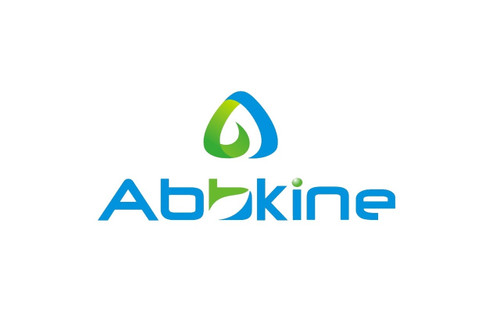Product Description
Human Thymidylate synthase (TYMS) ELISA Kit | AE12649HU | Abebio
Species Reactivity: Human (Homo sapiens)
Abbreviation: TYMS
Alternative Name: HST422; MGC88736; TMS; TS; TSase|thymidylate synthase
Application: ELISA
Range: 0.312-20 ng/mL
Sensitivity: 0.113 ng/mL
Intra-Assay: ≤5.2%
Inter-Assay: ≤8.1%
Recovery: 0, 97
Sample Type: Serum, Plasma, Other biological fluids
Detection Method: Sandwich
Analysis Method : Quantitive
Test Principale: This assay employs a two-site sandwich ELISA to quantitate TYMS in samples. An antibody specific for TYMS has been pre-coated onto a microplate. Standards and samples are pipetted into the wells and anyTYMS present is bound by the immobilized antibody. After removing any unbound substances, a biotin-conjugated antibody specific for TYMS is added to the wells. After washing, Streptavidin conjugated Horseradish Peroxidase (HRP) is added to the wells. Following a wash to remove any unbound avidin-enzyme reagent, a substrate solution is added to the wells and color develops in proportion to the amount of TYMS bound in the initial step. The color development is stopped and the intensity of the color is measured.
Product Overview: Thymidylate synthetase (EC 2.1.1.45) is the enzyme used to generate thymidine monophosphate (dTMP), which is subsequently phosphorylated to thymidine triphosphate for use in DNA synthesis and repair. By means of reductive methylation, deoxyuridine monophosphate (dUMP) and N5, N10-methylene tetrahydrofolate are together used to form dTMP, yielding dihydrofolate as a secondary product. As an anti-cancer chemotherapy target, thymidylate synthetase can be inhibited by the thymidylate synthase inhibitors such as fluorinated pyrimidine fluorouracil, or certain folate analogues, including most notably raltitrexed (trade name Tomudex) .
Stability: The stability of ELISA kit is determined by the loss rate of activity. The loss rate of this kit is less than 5% within the expiration date under appropriate storage condition. The loss rate was determined by accelerated thermal degradation test. Keep the kit at 37°C for 4 and 7 days, and compare O.D.values of the kit kept at 37°C with that of at recommended temperature. (referring from China Biological Products Standard, which was calculated by the Arrhenius equation. For ELISA kit, 4 days storage at 37°C can be considered as 6 months at 2 - 8°C, which means 7 days at 37°C equaling 12 months at 2 - 8°C) .
 Euro
Euro
 USD
USD
 British Pound
British Pound
 NULL
NULL








